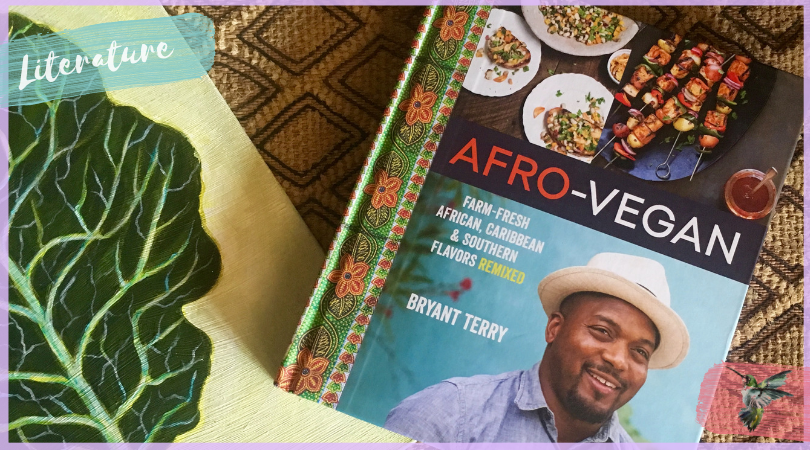Taste Food Justice With “Afro-Vegan” Recipes
Food Justice & Revitalized Diets
A part of supporting personal well-being is making conscious choices about the quality of food we eat. Maintaining a healthy diet can feel impossible sometimes for many reasons like being part of a family with a meat-focused diet, or healthy food practices seeming like a science in itself. Also, let’s not forget about the food disparities many people face, especially people of color. In urban environments, making that healthy choice can be difficult when you’re living in a food desert or when organic foods are pricier in grocery stores. Despite these reasons to put healthy eating on the back burner, there are great food justice initiatives bringing good food to the community. One way is via renowned chef and food justice activist Bryant Terry’s cookbook, Afro-Vegan.
Bryant Terry is currently the chief-in-residence at the Museum of the African Diaspora (MoAD). He is based in Oakland, CA, and holds a profound knowledge of the effects of diet on African-American health. Motivated by the good food and food justice movements thriving in Cali, this chef shares the importance of moving from mass-produced, animal-based foods back to real food.

Walking the line between vegetarian and pescatarian, I try to make good choices as much as I can– which led me to Afro-Vegan. Hold up, don’t let ‘vegan’ scare you away. You don’t have to be a vegan to incorporate vegan recipes into your diet. Choosing to have some meals without meat is the perfect way to build a better diet whether you choose to be vegetarian, vegan, and beyond. This is exactly what Terry champions in his book. When I read Afro-Vegan the recipes sounded delicious and looked so good from the book’s amazing photography, that I forgot everything inside is plant-based– which is just part of the beauty.
Inside the Book

Afro-Vegan is a collection of African, Caribbean, and Southern food. It reimagines staples and favorites like Skillet Cornbread with Pecan Dukkah and Blackened Okra and Red Rice. The nearly 200 recipes never leave out the flavor or cultural significance, ranging from breakfast to menu suggestions according to the seasons and holidays.
The book includes steps to create soups, stews, street food snacks, preserves, cakes, smoothies, biscuits, greens, cocktails and everything in between.
What I love about Afro-Vegan is that it is so much more than a book filled with recipes. The book emphasizes bringing back seed-to-table food traditions that are embedded in Black communities and cultures. The thoughtfulness Terry put in pours through every page.
Afro-diasporic foodways (that is, the shape and development of food traditions) carry our history, memories, and stories. They connect us to our ancestors and bring the past into the present day. They also have the potential to save our lives.
– Bryant Terry, Introduction
One of the first things that drew me in and cemented in my mind that I would keep this cookbook handy in my culinary future, was how Terry started the book with recipes for seasoning. To start the book with seasoning and sauces means something in terms of Afro-American cuisine and also breaks down the construct that vegan or vegetarian food doesn’t taste good. Everything is about seasoning whether it’s a piece of chicken, tofu, or vegetable. You gotta add flavor!
The book is also organized in an amazing way. In addition to his overview of dishes, Terry includes a song or book for someone to enjoy while they cook. This creates a heightened sensory experience–crafting the food with your hands, tasting what you’ve made and listening to suggested songs that harken to Caribbean, Southern and African traditions.

I can totally see myself creating a five-course meal from this book. I can’t wait to incorporate many of these recipes into my own daily routine. I especially want to try one his cocktail recipes or two. If you want to get a glimpse of one of his recipes, you can find it here. If you want to invigorate your life with Afro-Vegan cuisine, I suggest snagging a copy here.
Plant-focused meals are nothing new to traditional African and Caribbean diets, and prior to the industrialization of U.S. food, even the oft-maligned diet of African-Americans in the Southern states placed a heavy emphasis on locally grown vegetables. – Bryant Terry, pg. 56
Want to know more? Watch Bryant Terry talk “Afro-Vegan”
Follow Bryant Terry: Instagram | Twitter | Facebook
Follow Me: Twitter | Instagram | Facebook
Best,
Kai 😀





